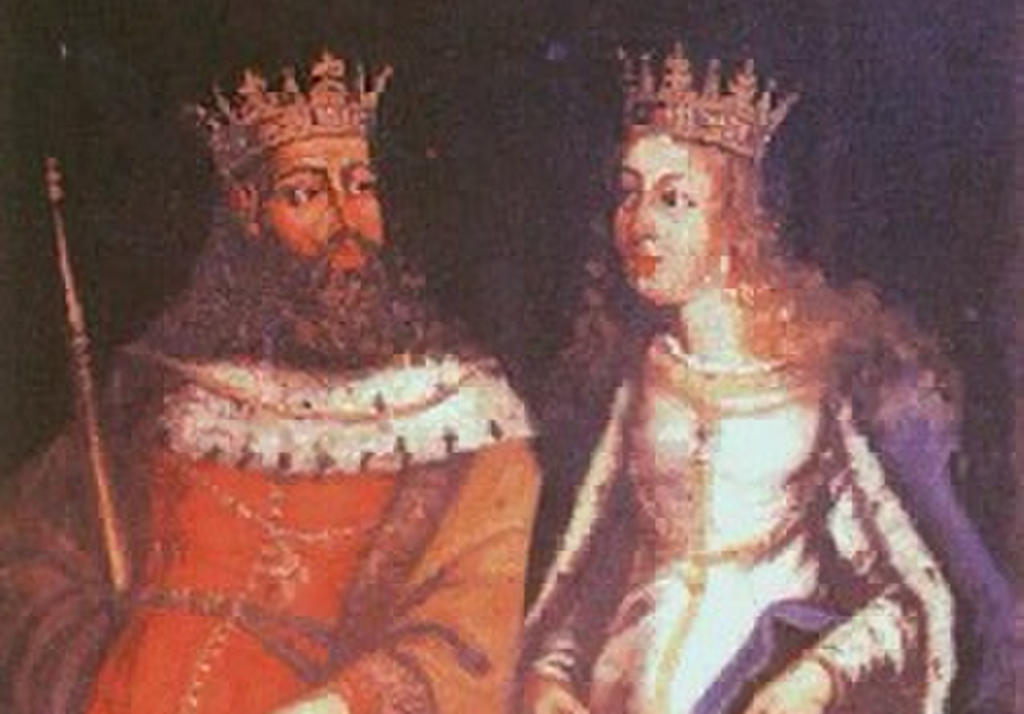King Sancho I of Portugal (1185-1211):
King Sancho I, also known as Sancho the Populator, was a pivotal figure in the history of Portugal. He ascended to the throne in 1185 and ruled until his death in 1211. Sancho I is best remembered for his efforts to expand and solidify the territories of Portugal. Through a series of military campaigns, he successfully conquered various regions from the Moors, including the cities of Silves, Alcácer do Sal, and Santarém.King Afonso II of Portugal (1211-1223):
Afonso II ascended to the throne following the death of his father, Sancho I. He focused on centralizing royal power, enhancing the legal system, and fostering economic development. Afonso II faced conflicts with the nobility and the church but successfully laid the foundations for a more consolidated Portuguese monarchy.Urraca of Zamora, Queen of Portugal (1212-1220):
Queen Urraca, also known as Urraca of Zamora, was a prominent figure in the history of medieval Spain. She was born in 1079 as the daughter of King Alfonso VI of León and Castile. Urraca inherited the throne of Castile in 1109 upon the death of her father. Her reign was marked by political turmoil and power struggles, as she faced opposition from nobles and her own husband, Alfonso I of Aragon.King Sancho II of Portugal (1223-1248):
King Sancho II of Portugal, known as the Pious, faced numerous challenges during his reign. He struggled to maintain control over his kingdom, facing rebellions from the nobility. Despite his efforts to strengthen royal authority, his reign was marked by internal conflicts and disputes that ultimately led to his deposition in 1248.Mécia Lopes de Haro, Queen of Portugal (1246-1248):
Queen Mécia Lopes de Haro was a prominent figure in medieval Portuguese history. Born in the 12th century, she married King Sancho II of Portugal, becoming his queen consort. Mécia Lopes de Haro played a significant role in the affairs of the kingdom and exerted influence over her husband's decisions.King Afonso III of Portugal (1248-1279):
Afonso III, also known as the Conqueror, played a pivotal role in expanding Portuguese territories. He successfully conquered the Algarve region from the Moors, further extending Portuguese influence. Afonso III's reign marked significant territorial gains and the consolidation of the Portuguese kingdom.Lisbon.vip Recommends
Matilda of Boulogne, Queen of Portugal (1248-1253):
Matilda of Boulogne, also known as Mahaut or Mathilde, was a notable figure in medieval European history. Born in 1202, she inherited the title of Countess of Boulogne from her mother, Ida, in 1216. Matilda's lineage boasted royal connections as she was the great-granddaughter of King Stephen of England. In 1248, she married King Afonso III of Portugal and became Queen consort. However, their marriage was short-lived, and they divorced in 1253.Beatrice of Castile, Queen of Portugal (1253-1279):
Queen Beatrice, born between 1242 and 1244, held a unique position as the illegitimate daughter of Alfonso X of Castile and his mistress, Mayor Guillén de Guzmán. Her lineage, despite her illegitimate status, brought her into the royal realm. Beatrice became the second Queen consort of Afonso III of Portugal, marrying him and assuming her role as queen. Though her reign as queen was not without challenges, Beatrice played a significant role in the royal court and contributed to the political and cultural developments of Portugal during her time as queen consort.King Denis of Portugal (1279-1325):
Denis, often referred to as the Farmer King, was known for his love of nature and agricultural reforms. He focused on promoting agricultural practices, introducing new crops, and implementing irrigation systems. Denis also established the first Portuguese university in Lisbon, fostering cultural and intellectual development.Saint Elizabeth of Aragon, Queen of Portugal (1282-1325):
Elizabeth, also known as Saint Elizabeth, was the wife of King Denis. Renowned for her piety and charitable works, she dedicated herself to religious activities and aiding the poor and sick. Queen Elizabeth's legacy as a compassionate and devout queen earned her sainthood.These kings and queens of Portugal in the 13th century played crucial roles in shaping the nation's identity, expanding its territories, and instituting important reforms. Their legacies continue to resonate in Portuguese history, leaving a lasting impact on the country's development and culture.



